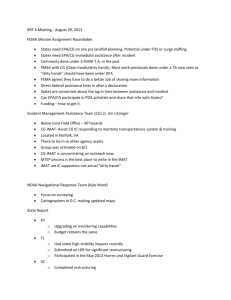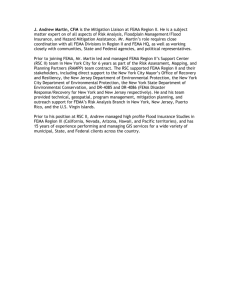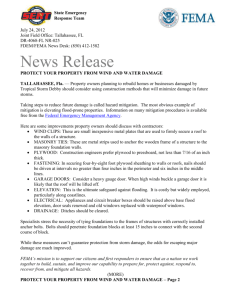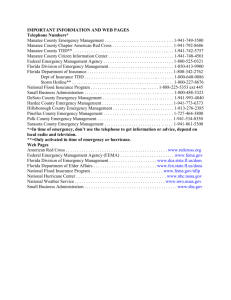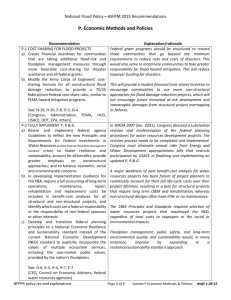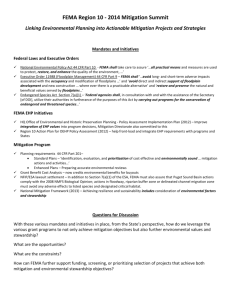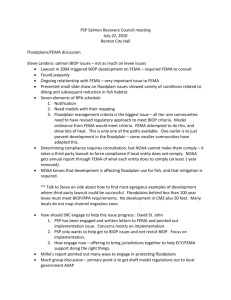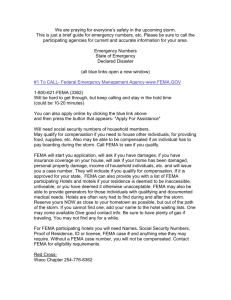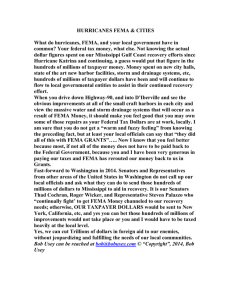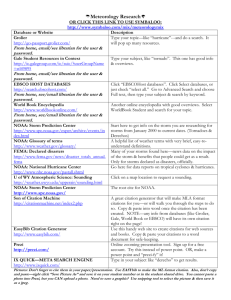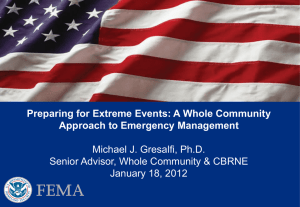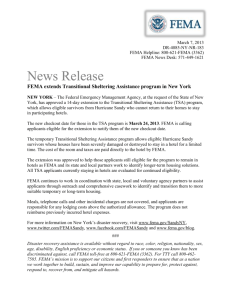Climate Change - The Association of State Floodplain Managers
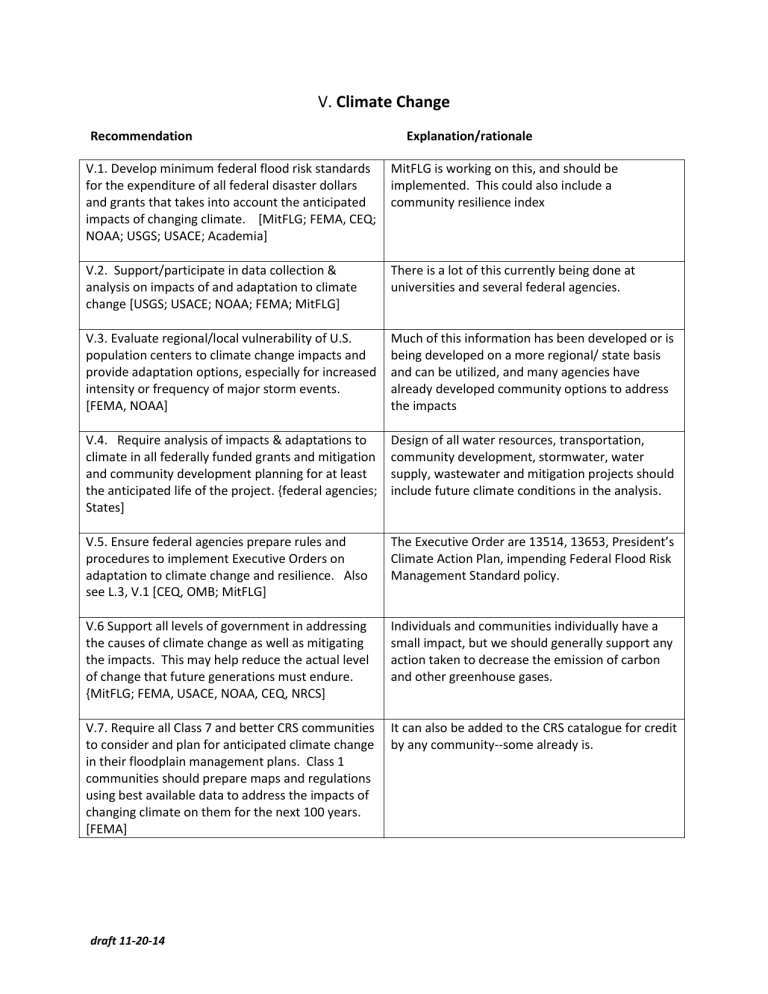
V. Climate Change
Recommendation Explanation/rationale
V.1. Develop minimum federal flood risk standards for the expenditure of all federal disaster dollars and grants that takes into account the anticipated impacts of changing climate. [MitFLG; FEMA, CEQ;
NOAA; USGS; USACE; Academia]
V.2. Support/participate in data collection & analysis on impacts of and adaptation to climate change [USGS; USACE; NOAA; FEMA; MitFLG]
V.3. Evaluate regional/local vulnerability of U.S. population centers to climate change impacts and provide adaptation options, especially for increased intensity or frequency of major storm events.
[FEMA, NOAA]
V.4. Require analysis of impacts & adaptations to climate in all federally funded grants and mitigation and community development planning for at least the anticipated life of the project. {federal agencies;
States]
V.5. Ensure federal agencies prepare rules and procedures to implement Executive Orders on adaptation to climate change and resilience. Also see L.3, V.1 [CEQ, OMB; MitFLG]
V.6 Support all levels of government in addressing the causes of climate change as well as mitigating the impacts. This may help reduce the actual level of change that future generations must endure.
{MitFLG; FEMA, USACE, NOAA, CEQ, NRCS]
V.7. Require all Class 7 and better CRS communities to consider and plan for anticipated climate change in their floodplain management plans. Class 1 communities should prepare maps and regulations using best available data to address the impacts of changing climate on them for the next 100 years.
[FEMA]
MitFLG is working on this, and should be implemented. This could also include a community resilience index
There is a lot of this currently being done at universities and several federal agencies.
Much of this information has been developed or is being developed on a more regional/ state basis and can be utilized, and many agencies have already developed community options to address the impacts
Design of all water resources, transportation, community development, stormwater, water supply, wastewater and mitigation projects should include future climate conditions in the analysis.
The Executive Order are 13514, 13653, President’s
Climate Action Plan, impending Federal Flood Risk
Management Standard policy.
Individuals and communities individually have a small impact, but we should generally support any action taken to decrease the emission of carbon and other greenhouse gases.
It can also be added to the CRS catalogue for credit by any community--some already is. draft 11-20-14
